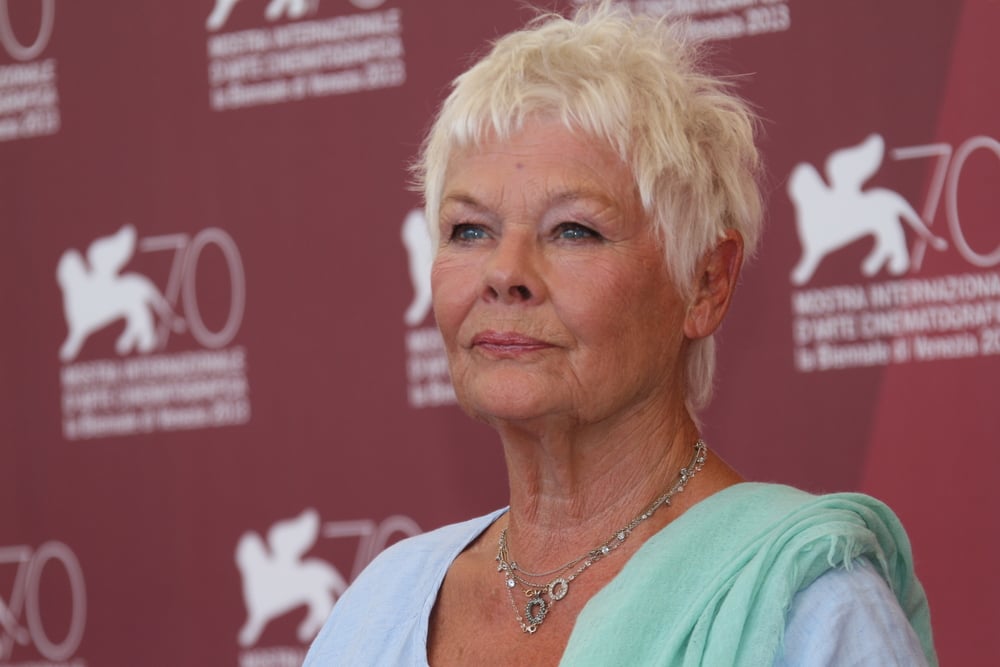They embraced their unique path without succumbing to self-doubt.

Success can come at any age, and many seniors prove that it’s never too late to make a lasting impact. From culinary breakthroughs to business empires, late bloomers like Warren Buffet and Julia Child achieved extraordinary success through specific habits that propelled them forward.
These individuals demonstrate how perseverance, adaptability, and creativity can fuel remarkable achievements well into their golden years.
Here are some keystone habits of seniors who achieved success late in life.
1. They never stopped learning and adapting.

Successful seniors often have an insatiable curiosity and willingness to evolve. Julia Child didn’t discover her passion for cooking until later in life, and she didn’t publish her first cookbook until age 50, says Our Next Life. Rather than viewing age as a limitation, she dove into French cuisine, taking classes and practicing relentlessly to master her craft. Her adaptability allowed her to transition from amateur to one of the most celebrated chefs in history.
This habit of continuous learning often involves embracing new skills, technologies, or ideas. Leonard Bernstein, for example, not only excelled as a conductor but also ventured into composing for Broadway, films, and symphonies well into his later years. Success late in life often stems from a mindset that views every challenge as an opportunity to grow and every stage of life as a platform for reinvention.
2. They cultivated resilience through failures.

Late success often requires a remarkable capacity to recover from setbacks. Colonel Harland Sanders, founder of KFC, faced countless rejections before his fried chicken recipe finally gained traction in his 60s. He spent years traveling across the country, sleeping in his car, and pitching his recipe to restaurant owners before finding success. His resilience kept him moving forward despite repeated failures.
This ability to embrace failure as a stepping stone is critical for later-in-life achievements. Similarly, Vera Wang transitioned to fashion design after an unfulfilled career in journalism and competitive figure skating. Her early career struggles didn’t deter her but instead fueled her determination to succeed. Seniors who thrive in later stages don’t fear setbacks—they see them as necessary steps toward their ultimate goals.
3. They found purpose in their passion.

Success often stems from a deep connection to one’s passion. According to Yahoo Finance, Warren Buffett, one of the world’s wealthiest individuals, became hyper focused on investing in his late 50s after years of slowly building his knowledge. His passion for finance and strategy led him to create Berkshire Hathaway, transforming his enthusiasm into a multibillion-dollar empire. For Buffet, his purpose wasn’t just financial gain—it was the challenge and joy of understanding complex systems.
Similarly, Grandma Moses, who began painting in her late 70s, didn’t pursue art for fame but because it brought her immense satisfaction. Her works eventually gained widespread recognition, proving that pursuing what you love often unlocks unexpected opportunities.
4. They surrounded themselves with inspiring influences.

Many late bloomers recognize the value of a supportive network. For example, Julia Child found encouragement and feedback from her husband, Paul, who believed in her talent and encouraged her culinary journey. Having people who support and challenge you can make a significant difference in maintaining momentum during uncertain times.
Similarly, Leonard Cohen found inspiration from his peers in the music industry when he transitioned from poetry to songwriting in his 30s and 40s. By keeping the company of those who inspired him, he developed his unique voice, leading to a legendary music career that continued well into his 80s.
5. They ignored societal timelines and expectations.

Society often pushes the idea that success must happen early, but seniors who thrive late in life reject this notion. Laura Ingalls Wilder, author of Little House on the Prairie, didn’t publish her first book until her 60s. Instead of feeling constrained by conventional timelines, she embraced her unique journey, which resonated with readers worldwide.
By ignoring age-based expectations, individuals like Wilder could focus on creating authentic, meaningful work. This mindset allows late achievers to define success on their own terms, unburdened by external pressures. It’s not about meeting arbitrary milestones but about making a mark when the time feels right.
6. They stayed physically and mentally active.

Maintaining an active body and mind is a hallmark of late achievers. Haruki Murakami, though not elderly, attributes much of his sustained creative output to running long distances. Similarly, seniors who achieve success later in life often engage in physical activities or mental challenges to stay sharp.
For example, Ruth Bader Ginsburg remained mentally agile into her late 80s through disciplined routines, exercise, and focus. Staying active fosters resilience, enhances creativity, and combats the physical and mental toll of aging, helping seniors maintain the energy required for ambitious pursuits.
7. They embraced unconventional career changes.

Late achievers often take bold risks by shifting careers. Ray Kroc, the mastermind behind McDonald’s, was in his 50s when he transitioned from selling milkshake machines to revolutionizing the fast-food industry. His willingness to pivot to an entirely new field set the stage for his massive success.
Similarly, artist Agnes Martin didn’t gain recognition until her 40s and continued creating groundbreaking work well into her later years.
8. They valued persistence over speed.

Late success isn’t about rushing; it’s about sustained effort over time. J.K. Rowling may have achieved fame in her 30s, but her journey resonates with seniors who know the value of persistence. She faced numerous rejections before Harry Potter became a global phenomenon, exemplifying the power of steady determination.
Likewise, James Dyson spent over a decade perfecting his vacuum technology. For older achievers, persistence isn’t just a habit—it’s a mindset that focuses on progress rather than immediate results, making eventual success even more fulfilling.
9. They reinvented themselves with courage.

Reinvention often defines late success stories. Sam Walton didn’t open the first Walmart until his 40s, but his willingness to adapt and innovate within the retail industry eventually made him one of the richest men in the world. Reinvention requires courage but often leads to transformative opportunities.
Another example is Betty White, who continuously reinvented her career to stay relevant across multiple generations. Her adaptability and humor helped her thrive for decades, proving reinvention isn’t limited by age.
10. They focused on creating a legacy, not just achieving goals.

Seniors who succeed late in life often prioritize the lasting impact of their work. Nelson Mandela, who became South Africa’s president at 75, worked tirelessly to leave behind a legacy of reconciliation and justice. His focus wasn’t on personal gain but on creating meaningful change for future generations.
Similarly, Frank Lloyd Wright produced some of his most iconic architectural designs in his 70s, including the Guggenheim Museum.
11. They believed it was never too late to start.

Above all, successful seniors refuse to let age define their potential. Anna Mary Robertson Moses (Grandma Moses) started painting in her 70s simply because she wanted to. Her story is a testament to the idea that beginnings aren’t confined to youth.
This unwavering belief that it’s never too late drives many late bloomers to achieve greatness. Whether through writing, painting, or starting businesses, they recognize that age is no barrier to ambition. Their stories encourage others to embrace opportunities at any stage of life.
